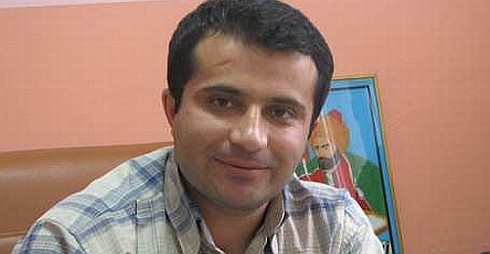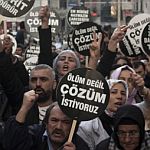
On Monday, representatives from Turkey's two main media associations visited Temel in a Diyarbakir Province hospital.
Ercan İpekçi, head of Turkish Journalists' Union, told bianet that while Temel's general health is improving, he is still suffering from fatigue, sensitivity to certain sounds and difficulty in speaking, walking and reading.
Hunger striker inmates in Diyarbakir Prison with grave after effects will remain in the hospital for another ten days, İpekçi said.
There are currently 49 inmates from Diyarbakir prison, who suffer from after effects and remain in hospital care. Most inmates refused to take solid food for a period of 68 days until PKK leader Ocalan made an appeal to end hunger strikes.
İpekçi and Yaşar, along with other members from Turkish Jornalists Association, have scheduled appointments with two female hunger striker journalists, Fatma Koçak from DIHA and Ayşe Oyman from Özgür Gündem.
"Hunger strike was our last resort"
I was informed that Temel will not suffer from permanent side effects, İpekçi continued. He also conveyed a message from Temel, who is still in his hospital bed: "Hunger strike was our last resort, because we felt stuck about our cause. There is an awareness now amid media and officials. We were emphasizing on dialogue for avoiding further deaths [referring to clashes between Turkish Army and PKK], I think we accomplished to our goal."
14 inmates hospitalized in Batman
14 inmates serving in Batman Prison were transferred to a local hospital," Faruk Günak, a local representative from State Hospitals Union, said on Monday.
Günak disclosed that no inmates' situation contain a life risk, adding that inmates will be treated with routine medical procedures.
In Van Province, hunger strikes initiated by 95 inmates ended on 17 November, leaving 17 strikers hospitalized. Other 78 inmates remaining in Van Prison go through health controls on daily basis. (AS)












